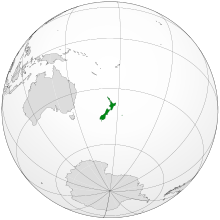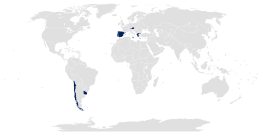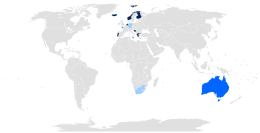
New Zealand lesbian, gay, bisexual, and transgender (LGBT) rights are some of the most extensive in the world. The protection of LGBT rights is advanced, relative to other countries in Oceania, and among the most liberal in the world, with the country being the first in the region to legalise same-sex marriage.

Intersex Awareness Day is an internationally observed awareness day each October 26, designed to highlight human rights issues faced by intersex people.
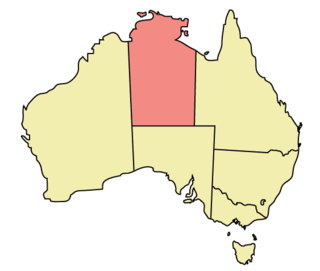
Lesbian, gay, bisexual, and transgender (LGBT) people in Australia's Northern Territory have the same legal rights as non-LGBT people. The liberalisation of the rights of lesbian, gay, bisexual and transgender (LGBT) people in Australia's Northern Territory has been a gradual process. Homosexual activity was legalised in 1983, with an equal age of consent since 2003. Same-sex couples are recognised as de facto relationships. There was no local civil union or domestic partnership registration scheme before the introduction of nationwide same-sex marriage in December 2017, following the passage of the Marriage Amendment Act 2017 by the Australian Parliament. The 2017 Australian Marriage Law Postal Survey, designed to gauge public support for same-sex marriage in Australia, returned a 60.6% "Yes" response in the territory. LGBT people are protected from discrimination by both territory and federal law, though the territory's hate crime law does not cover sexual orientation or gender identity. The territory was the last jurisdiction in Australia to legally allow same-sex couples to adopt children.
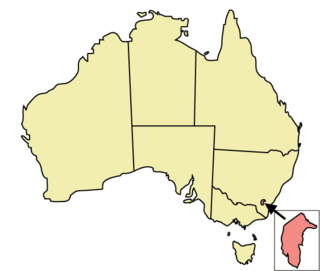
The Australian Capital Territory (ACT) is one of Australia's leading jurisdictions with respect to the rights of lesbian, gay, bisexual, and transgender (LGBT) people. The ACT has made a number of reforms to territory law designed to prevent discrimination of LGBT people; it was the only state or territory jurisdiction in Australia to pass a law for same-sex marriage, which was later overturned by the High Court of Australia. The Australian Capital Territory, Victoria, New South Wales and Queensland are the only jurisdictions within Australia to legally ban conversion therapy on children. The ACT's laws also apply to the smaller Jervis Bay Territory.

Intersex Human Rights Australia (IHRA) is a voluntary organisation for intersex people that promotes the human rights and bodily autonomy of intersex people in Australia, and provides education and information services. Established in 2009 and incorporated as a charitable company in 2010, it was formerly known as Organisation Intersex International Australia, or OII Australia. It is recognised as a Public Benevolent Institution.
Intersex Aotearoa is a nonprofit organisation based in New Zealand, and is a national advocacy and peer support organisation for intersex people. The organisation was founded in 1996 by Mani Mitchell, and has previously been known as the Intersex Trust Aotearoa New Zealand and Intersex Awareness New Zealand.

Intersex people are born with sex characteristics, such as chromosomes, gonads, or genitals, that, according to the UN Office of the High Commissioner for Human Rights, "do not fit typical binary notions of male or female bodies."

Intersex people are born with sex characteristics, such as chromosomes, gonads, or genitals that, according to the United Nations Office of the High Commissioner for Human Rights, "do not fit typical binary notions of male or female bodies".

Intersex people are born with sex characteristics, such as chromosomes, gonads, or genitals that, according to the UN Office of the High Commissioner for Human Rights, "do not fit typical binary notions of male or female bodies". "Because their bodies are seen as different, intersex children and adults are often stigmatized and subjected to multiple human rights violations".

Transgender and non-binary people in New Zealand face discrimination in several aspects of their lives. The law is unclear on the legal status of discrimination based on gender identity, and also for intersex people.

Intersex people are born with sex characteristics that "do not fit the typical definitions for male or female bodies". They are substantially more likely to identify as lesbian, gay, bisexual, or transgender (LGBT) than endosex people. According to a study done in Australia of Australian citizens with intersex conditions, participants labeled 'heterosexual' as the most popular single label with the rest being scattered among various other labels. According to another study, an estimated 8.5% to 20% experiencing gender dysphoria. Although many intersex people are heterosexual and cisgender, this overlap and "shared experiences of harm arising from dominant societal sex and gender norms" has led to intersex people often being included under the LGBT umbrella, with the acronym sometimes expanded to LGBTI. Some intersex activists and organisations have criticised this inclusion as distracting from intersex-specific issues such as involuntary medical interventions.

The following is a timeline of intersex history.

Intersex rights in Australia are protections and rights afforded to intersex people through statutes, regulations, and international human rights treaties, including through the Sex Discrimination Act 1984 (Cth) which makes it unlawful to discriminate against a person based upon that person's intersex status in contexts such as work, education, provision of services, and accommodation.

Intersex people in the United States have some of the same rights as other people, but with significant gaps, particularly in protection from non-consensual cosmetic medical interventions and violence, and protection from discrimination. Actions by intersex civil society organizations aim to eliminate harmful practices, promote social acceptance, and equality. In recent years, intersex activists have also secured some forms of legal recognition. Since April 11, 2022 US Passports give the sex/gender options of male, female and X by self determination.

The Malta declaration is the statement of the Third International Intersex Forum, which took place in Valletta, Malta, in 2013. The event was supported by the ILGA and ILGA-Europe and brought together 34 people representing 30 organisations from multiple regions of the world.

Intersex people in South Africa have some of the same rights as other people, but with significant gaps in protection from non-consensual cosmetic medical interventions and protection from discrimination. The country was the first to explicitly include intersex people in anti-discrimination law.

Intersex people in Germany have legal recognition of their rights to physical integrity and bodily autonomy, with exceptions, but no specific protections from discrimination on the basis of sex characteristics. In response to an inquiry by the German Ethics Council in 2012, the government passed legislation in 2013 designed to classify some intersex infants as a de facto third category. The legislation has been criticized by civil society and human rights organizations as misguided.

Intersex people in the United Kingdom face significant gaps in legal protections, particularly in protection from non-consensual medical interventions, and protection from discrimination. Actions by intersex civil society organisations aim to eliminate unnecessary medical interventions and harmful practices, promote social acceptance, and equality in line with Council of Europe and United Nations demands. Intersex civil society organisations campaign for greater social acceptance, understanding of issues of bodily autonomy, and recognition of the human rights of intersex people.

Intersex people are born with sex characteristics, such as chromosomes, gonads, hormones, or genitals that, according to the UN Office of the High Commissioner for Human Rights, "do not fit the typical definitions for male or female bodies". Such variations may involve genital ambiguity, and combinations of chromosomal genotype and sexual phenotype other than XY-male and XX-female.

Intersex people in Argentina have no recognition of their rights to physical integrity and bodily autonomy, and no specific protections from discrimination on the basis of sex characteristics. Cases also exist of children being denied access to birth certificates without their parents consenting to medical interventions. The National Institute Against Discrimination, Xenophobia and Racism and civil society organizations such as Justicia Intersex have called for the prohibition of unnecessary medical interventions and access to redress.

